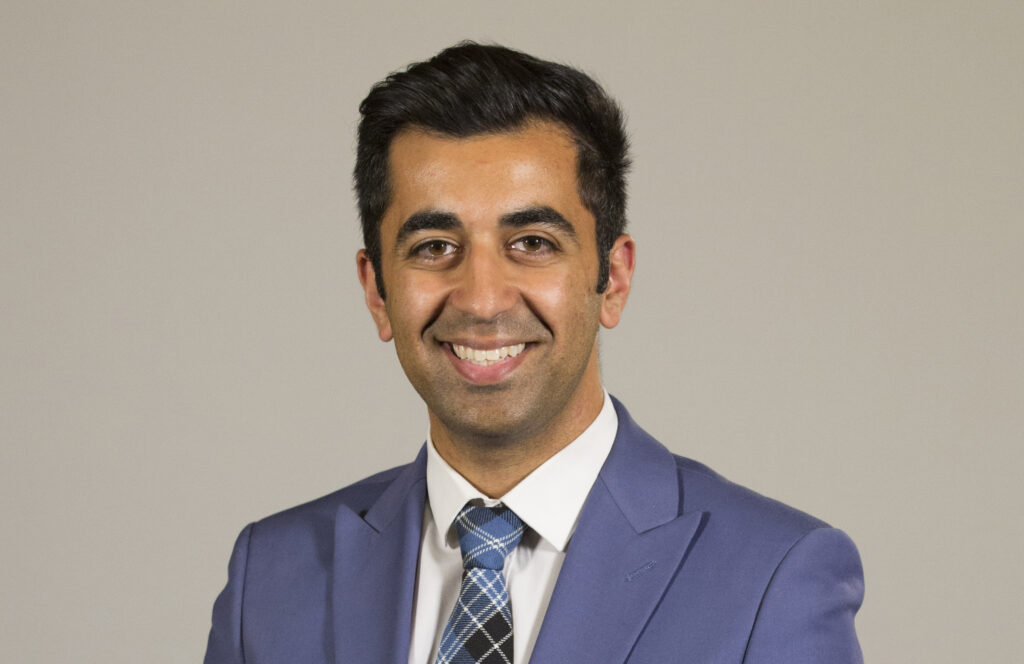Refreshed health and care strategy has latest technology at its heart as Scotland recovers from Covid
The refreshed digital health and care strategy which we published on 27 October, offers the prospect of significant benefits for the public and those who work in the health and care system.
Digital technologies can help ensure care is delivered in a way, place and time that works best for
people. Scotland’s digital health strategy was first launched in 2018, but the Covid-19 pandemic has significantly accelerated some of the ambitions it set out, while highlighting areas where we can do better.
Of course, face-to-face appointments will always be available for people who need them. This is about increasing choice and flexibility, and providing other options alongside traditional face-to-face appointments.
Refreshing the digital strategy – part of our Programme for Government – builds upon the successes that were achieved as a result of Covid-19, such as Near Me video consulting; increased digital capability in care homes; and the increase in remote monitoring and self-management of conditions from home.
It also sets out how citizens can be given access to, and greater control over, their own health and
social care data – as well as access to the information, support and services they need to help maintain and improve their health and wellbeing.
Digital approaches have been at the heart of our Covid-19 response, such as Test and Protect, the vaccination rollout, support for home working, and digital support within care homes, alongside access to devices, all of which enabled many vital services to continue.
We want to build upon the progress which has been accelerated as a result of Covid-19, for example we have seen real successes with the Near Me video consultation platform which saw consultations grow from a starting point of about 300 a week in February 2020, to about 20,000 a week by April 2021.
Another major programme of work has been the scale up of our Remote Health Pathways programme – which is in place to support people with long term health conditions such as high blood pressure, chronic obstructive pulmonary disease (COPD), asthma and more recently Covid-19.
The Scale Up Blood Pressure programme has exceeded the current target, with more than 25,000 people recruited and over 50 per cent of general practices across Scotland now participating. Digital Mental Health has also seen significant growth with the adoption of computerised cognitive behavioural therapy (CBT) and the deployment of internet enabled CBT services across Scotland.
We are providing nearly £2m this year (2021-2022) to support ongoing expansion of these much-needed services.
More than ever, people now look to digital tools to access a multitude of services, and health and
care is no different. Just as digital technology was at the forefront of our response to the pandemic, it will be central to how we re-build and remobilise the NHS as part of recovery from Covid-19.
It will also be central to plans to develop a National Care Service and other social care. To keep us on track, we will develop a rolling three-year delivery plan, updated each year from April 2022.
The pandemic has highlighted the urgent need for relevant, accessible and up-to-date data. Next year we will publish a dedicated Data Strategy for Health and Social Care, to ensure health and care data supports the delivery of services, in a way that empowers people and supports innovation and research.
We are committed to making this process transparent and open. The people of Scotland have shown enormous courage, commitment and determination to adapt to and overcome the many challenges that the pandemic has brought.
The refreshed strategy is focused on putting people first, promoting choice and inclusion. We want to ensure no-one is left behind on this digital journey and are working closely with other programmes, such as Connecting Scotland to ensure the most vulnerable people are not digitally excluded.
While the last year has brought extraordinary challenges for us all, Covid-19 has shown that we can pull together and achieve extraordinary results at pace, and under extremely trying conditions. I am keen to ensure that momentum is not lost.
This refreshed strategy will ensure that digital options are increasingly available as a choice for people accessing services and staff delivering them.
We will involve people and staff in the design of tools, technologies and services that support them, as we know that designing services along with users is more likely to deliver meaningful and lasting change that improves outcomes.
